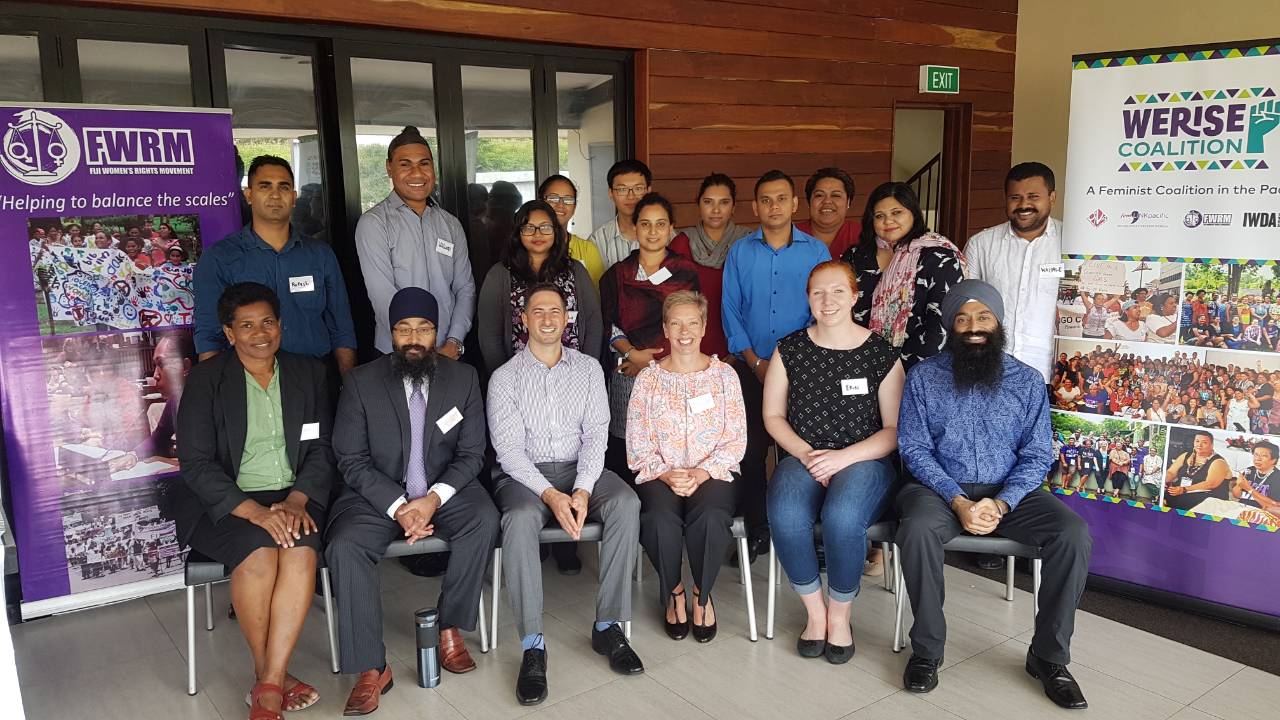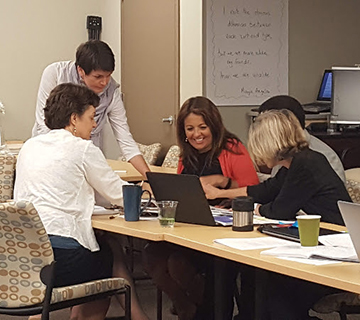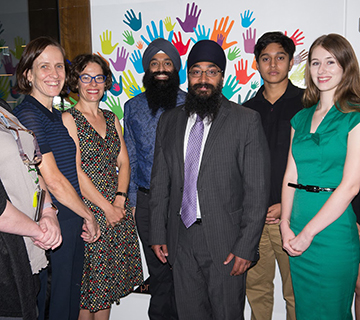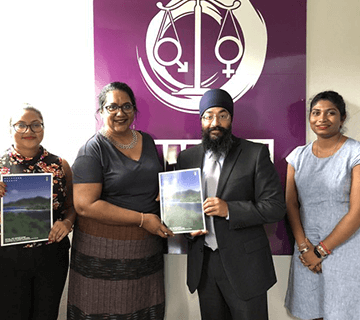Stop Sexual Harassment
Combating Sexual Harassment Through Education and Consensus
Program Area:
Capacity Building
Location:
Fiji

Training key institutions that work to strengthen the implementation of sexual harassment laws and policies.
The Challenge
In Fiji, sexual harassment is a major problem and is often a precursor to gender-based violence, which more than 2/3rds of women and girls in Fiji have faced in their lifetimes.
Research Insights
- Our partner, FWRM, commissioned a survey of 1,000 women in Suva, Lautoka, Nadi, and Labasa that showed 20% of women on average face sexual harassment in the workplace, with incidence being the highest (35%) for those in the hotel and accommodation industry
- 82% of sexual harassment cases in Fiji go unreported
Intervention
ICAAD in partnership with Fiji Women’s Rights Movement (FWRM) organised the first ever train the trainers workshop in Fiji to raise awareness on combating sexual harassment in the workplace. The training targeted key stakeholders and agencies to strengthen implementation of laws and policies. These institutions included Ministry of Employment, Human Rights Commission, Fiji Women’s Crisis Center, Empower Pacific, and Medical Services Pacific. The workshop was developed by ICAAD and partner law firm Manatt, Phelps, and Phillips with both input and support from FWRM. Over three days, we explored the motivations around sexual harassment, different forms of harassment (quid pro quo, hostile work environment), retaliation, and drafting an effective sexual harassment policy to ensure public and private sector entities had the tools going forward to build the infrastructure needed to address sexual harassment in the workplace. The training included numerous case studies, role playing exercises, and lively debate over the most effective way to embed sexual harassment prevention into the culture of public and private sector workplaces in Fiji. We are committed to conducting similar workshops in additional locations.
Testimonials
“There’s an urgent need for awareness and training, to ensure that staff and workers know about the workplace policy and how to seek redress if they’ve been a victim/survivor of sexual harassment.” – Ms. Waqavonovono, Board Chair of FWRM.
“I am proud of the work Manatt has undertaken in the Pacific region, a place with one of the highest rates of GBV in the world. I am excited to continue working with the ICAAD team as it takes a systems approach to addressing an extremely complex social problem in a part of the world that no one would recognize as anything but idyllic.”
– Sharon Bauman, Partner, Manatt
Our Impact
The diversity of participants in Fiji will lead to varied ways in which the learnings from the training will be implemented. For example, FWRM human rights trainers will deploy their training based on requests they have had from the Ministry of Women and other institutions. Other civil society groups like Fiji Women’s Crisis Center, Medical Services Pacific, and Empower Pacific will be more aware of how to counsel their clients who may have faced sexual harassment in the workplace. They will know that there are both criminal and civil remedies available in Fiji and how their clients should initiate a complaint process. Participants from the Ministry of Employment and Fiji Human Rights Commission, who actually review sexual harassment claims, will be more likely to bring a progressive understanding (in line with best practices under both domestic and international standards) of the law to their analysis. All the participants will also assess their own internal sexual harassment policies (assuming they have one) with the policy we jointly designed during the training.




